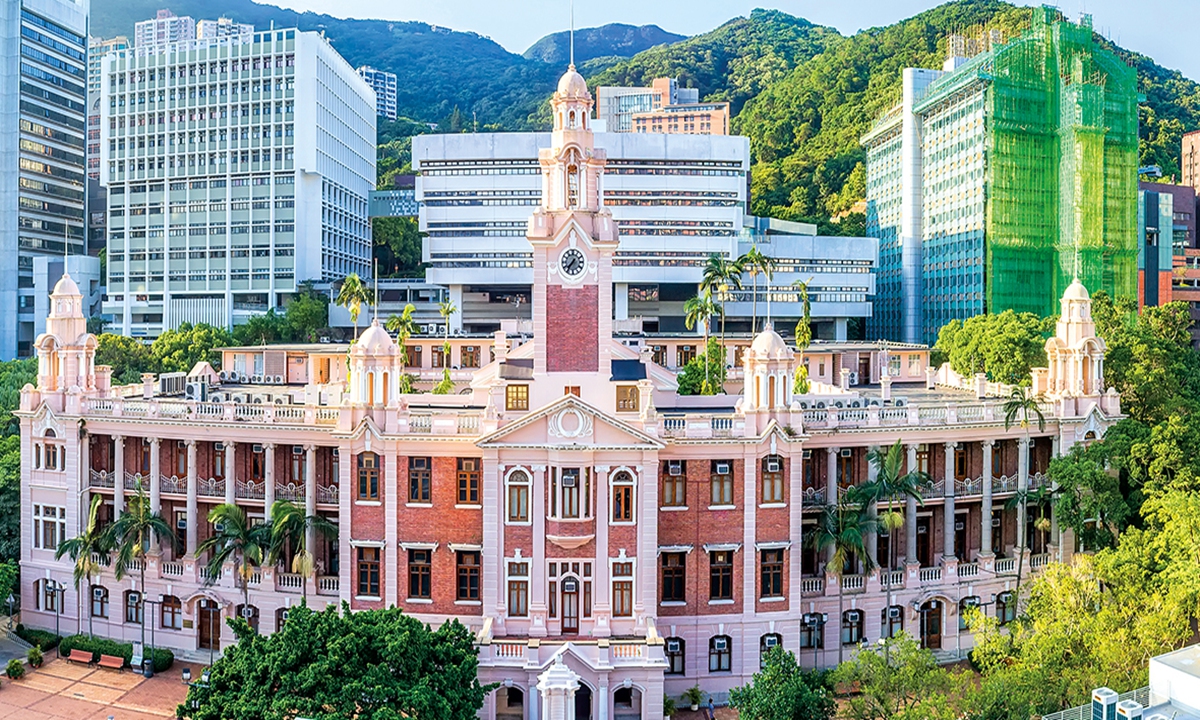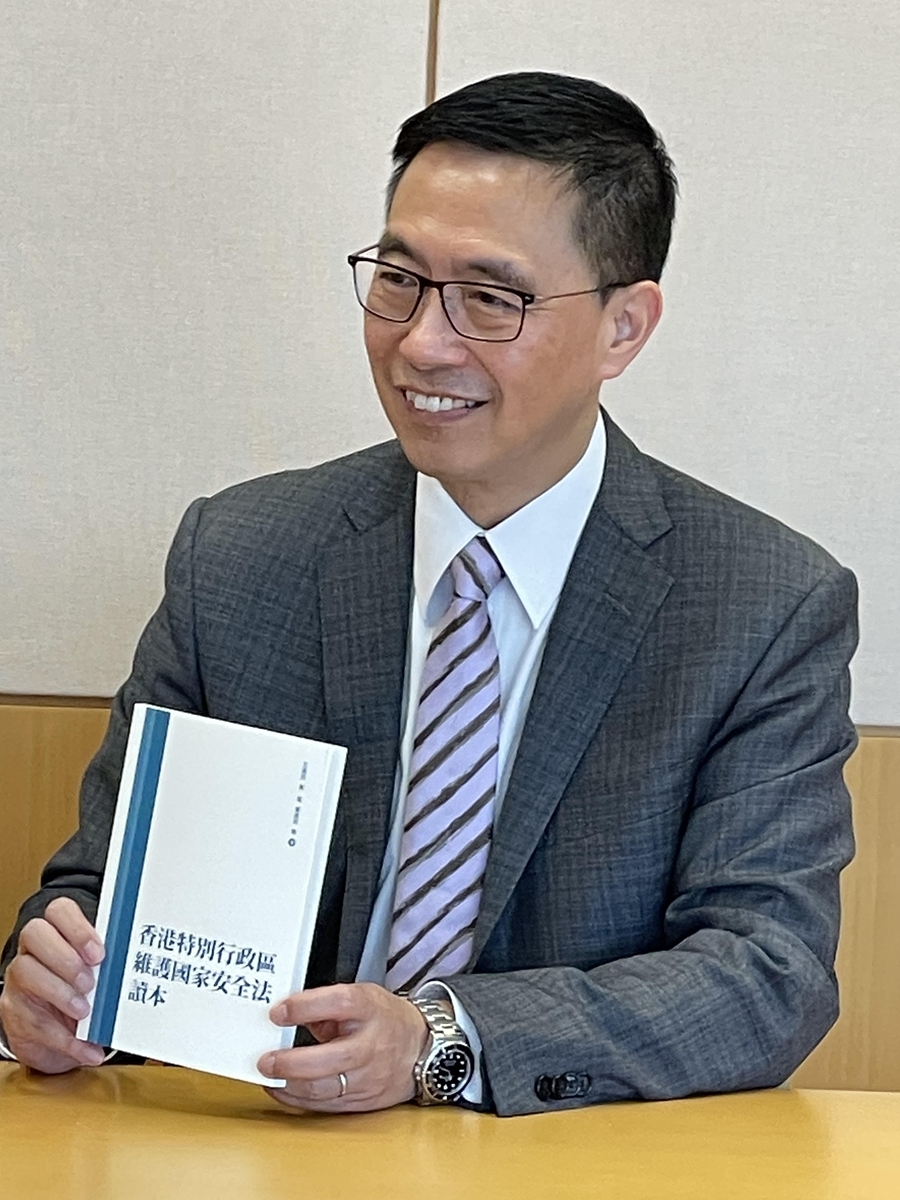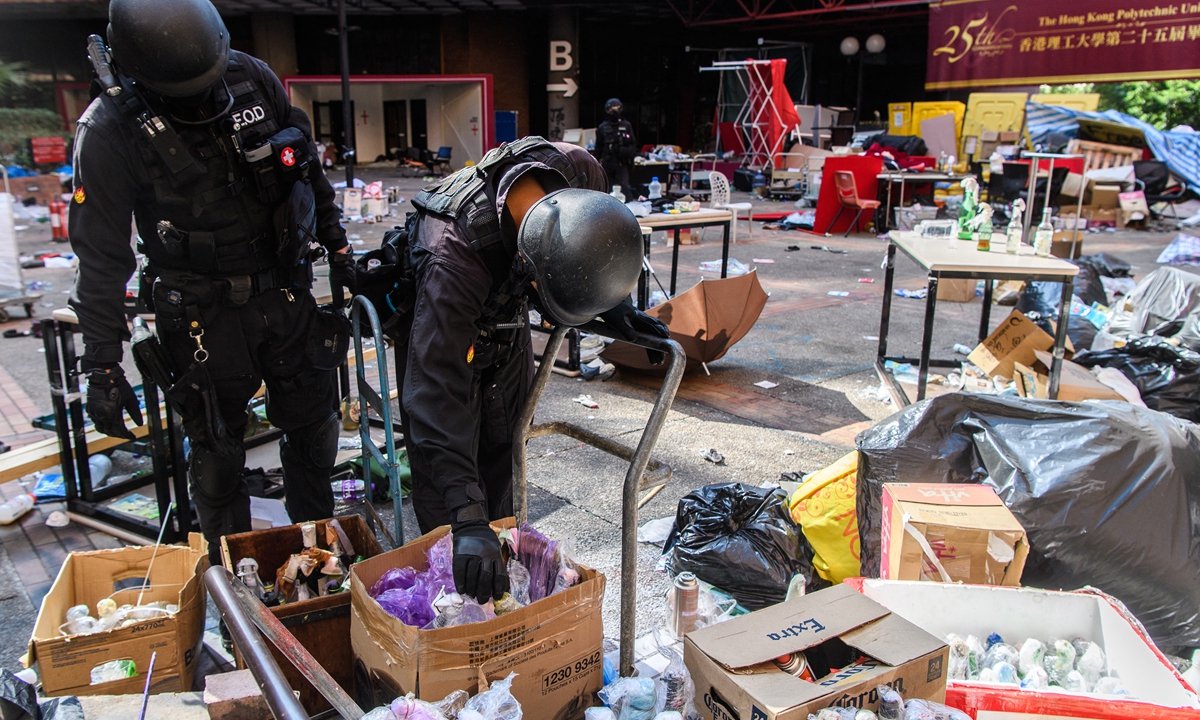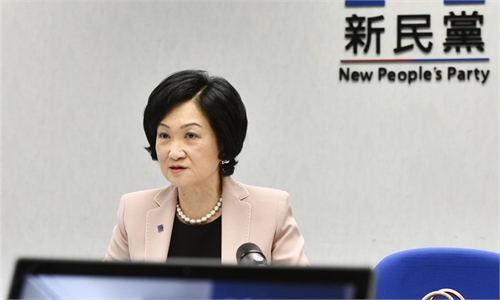IN-DEPTH / IN-DEPTH
Hongkongers should be taught about their Chinese identity at an early age: Hong Kong education secretary
Enhance national security

A view of Loke Yew Hall of the Hong Kong University Photo: VCG
Editor's Note:
It has been a little more than one year since the enactment of the national security law for Hong Kong. This year also marks the centennial of the founding in July 1, 1921 of the Communist Party of China (CPC). Hong Kong society celebrated both occasions. Given the past turbulences in Hong Kong, how will people in Hong Kong be educated to enhance their sense of national identity? Are worries that the academic establishments in Hong Kong will be less diverse warranted? Global Times (GT) reporters Wang Wenwen and Zhao Juncheng talked to Hong Kong's Secretary for Education Kevin Yeung Yun-hung (Yeung) over these issues.
GT: How will the Education Bureau incorporate content about the CPC into relevant subjects?
Yeung: It should be noted that the development of the CPC over the past century is associated with the development of the entire country. Our country, from its founding [in 1949] to realizing its first centenary goal of building a moderately prosperous society in all respects, from standing up to becoming rich and strong, has been led by the CPC in a down-to-earth manner.
We have the subjects of Chinese History and History in Hong Kong. The former is about the history of our country, whereas the latter is about our country and the rest of the world. As far as the history of Modern China is concerned, this will inevitably touch on how the CPC evolved in the past 100 years, how the CPC improved people's lives, how it prioritized people's livelihoods, and how it kept innovating.
The idea of "one country, two systems" applied to Hong Kong was developed, promoted, and practiced by the CPC. The CPC plays an important role in maintaining this principle. We will introduce these topics in various subjects.
Besides classroom courses, we have students from primary and middle schools in communication with their mainland counterparts. They also go to different places, including museums, where they have a chance to see for themselves the CPC's contribution to the country's development history.
GT: The University of Hong Kong (HKU) recently withdrew its recognition of the HKU student union after the union passed a motion to express condolences to the offender who carried out a "lone wolf" attack on a police officer before killing himself on July 1. Chief Executive Carrie Lam, who is also the chancellor of the HKU, also condemned the motion. What do the moves by the government and the university authorities indicate?
Yeung: I fully support HKU's action. HKU should follow up on the incident to, on one hand, require students to stop similar comments and moves, and on the other hand, deal with the incident according to relevant principles.
Hong Kong universities should take national security into consideration in their internal management systems.
The move of the HKU student union indicated that some individuals have problems with value judgment. HKU is one of the best higher education institutes in Hong Kong, so the comments and moves of the HKU student union would misguide local youngsters.
About 40 percent of some 10,000 individuals arrested during the 2019 anti-extradition bill movement were students or youngsters, which is a comparatively high rate. After the implementation of the national security law for Hong Kong in 2020, the Hong Kong Education Bureau has been promoting national security content in courses and management in local elementary, middle schools and in universities.

Hong Kong's Secretary for Education Kevin Yeung Yun-hung Photo: Courtesy of Yeung
GT: The Hong Kong Education Bureau has begun to distribute a book written by mainland scholars, including the former liaison office legal affairs chief, Wang Zhenmin, on the national security law for Hong Kong, to kindergartens to help preschool children understand the country and its culture. How necessary is it to enhance preschool children' education on national security and identity?
Yeung: It can be addressed from two aspects. For one, the concept of national security was rarely mentioned in the past, so for Hong Kong society, especially for teachers, it is a new concept. Now we are required to promote national security education as stipulated in the law, and thus our teachers should understand the concept of national security first so that they can explain it to their students.
For the other, when is the right time to start national security education? Could preschool children be taught to understand what national security is and what breach of law means? But it needs to make clear that national security is based on national identity, so we should start to educate preschool children from an early age to cultivate their sense of national identity and their understanding of Chinese culture.
For instance, Middle-Autumn Day, a traditional Chinese festival, is approaching. We can teach preschool children about this festival and enhance the idea that they are Chinese. This is a prelude to national security education.
GT: The Education Bureau previously announced that when the 2020/21 academic year begins, new teachers and those to be promoted would join a four-day study group in the mainland. Could you brief us on this plan, for example, which schools and institutions will they go to and what will the exchange program be? Do you plan to include the plan of expanding the exchange program between Hong Kong and mainland students into the secondary school curriculum?
Yeung: Since the beginning of this school year, we have had a requirement for teacher training. In the past, we also asked them to do some professional training. Starting from this school year, our Education Bureau stipulates that they should also attend some of our courses, mainly related to the Constitution, the Basic Law, the national security law for Hong Kong, and some content related to the professional ethics of teachers.
For newly recruited teachers, we have one requirement, that is to go to the mainland for a three-to-four-day exchange tour. The purpose is to give those teachers the opportunity to go to the mainland to see the development of our country. Talking with some teachers in the mainland's primary and secondary schools, visiting companies, participating in cultural projects, such exchange experiences could give them a more comprehensive understanding of our country.
We also do such exchange programs with the help of mainland training institutions. However, due to the epidemic, we could not make it [right now]. As soon as the people-to-people exchange and cross-boundary activities resume, I think the program will be launched immediately. As we have about 1,000 newly recruited teachers every year, such a program is important.
In terms of student exchanges, we send about 100,000 students [to the mainland] every year, which is helpful for our middle and elementary school students to have more profound feelings for our country after they participate in different exchange activities in the mainland.

Hong Kong Police Explosive Ordnance Disposal Bureau personnel handle a Molotov cocktail as they search for explosives and chemicals on November 28, 2019 at the Hong Kong Polytechnic University occupied by rioters. Photo: AFP
GT: Some teachers have concerns that perhaps in the future teaching work, some "sensitive questions" won't be able to be brought up, or some diverse opinions won't be accepted. How do you see these concerns?
Yeung: We have flexibility in our teaching work in Hong Kong. We could bring up different questions to help students understand issues from multiple perspectives. What we want to achieve is to help students gain knowledge and instill positive values into them.
When we talk about our relationship with the country, one of our goals is to cultivate the recognition of our country among students, making them feel that they shoulder the responsibility of safeguarding the national security. Maybe they could talk about some sensitive questions, which is allowed.
The ultimate goal is to shape a positive value system. From this perspective, the teaching work won't lead to any problematic results.
GT: Over the past year since the national security law took effect, what results do you think the education about national security and national recognition has achieved?
Yeung: The national security law for Hong Kong gives us tranquility to implement more policies for future development. It also gives us tranquility for working on education. During the social turmoils in the past years, it was much difficult to pursue education in schools. With the national security law for Hong Kong in place, we now have the opportunity to promote the concept of national security in schools and have the opportunity to rationally talk with our students gradually, which is important for cultivating their national identities. There is more room for recognition. I have also talked to some representatives in the sector on many different occasions that our priority in the future work is working on a value system, including national education and national identity recognition.

